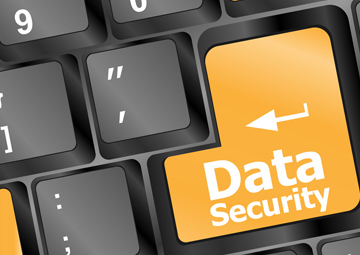 The amount of information that companies must keep secure is rising drastically every year. As a result of technological advancements, companies are constantly gaining more data about their clients and customers. Data also resides in paper documents, and these are best converted into digital files with the help of data conversion services.
The amount of information that companies must keep secure is rising drastically every year. As a result of technological advancements, companies are constantly gaining more data about their clients and customers. Data also resides in paper documents, and these are best converted into digital files with the help of data conversion services.
With the convenience that the Internet offers now, a lot of data exchange occurs online. Customers may also submit highly sensitive information such as their credit card details and other personal information. If these data reach the wrong hands, then it can prove very costly to the company. So to prevent data breaches, companies should take the necessary strong data security steps. Following are some precautions you can take to prevent data breach.
- Cloud data protection: One of the best ways to protect data is by encrypting critical data before storing it in the cloud; the enterprise must maintain the keys, and not the cloud vendor. This provides protection from unwelcome government surveillance and also helps to remove some of the biggest obstacles to cloud adoption such as concerns related to security, compliance and privacy.
- Encryption of Big Data: With data encryption, you can ensure safety of data. The key is to install encryption at all levels. Businesses must have encrypted card readers for all customers to use, and other companies should encrypt all sensitive emails. Use encryption and other related techniques to secure data stored on Big Data platforms. This will ensure protection of personal privacy, compliance, and also reduce the impact of inadvertent data leaks and cyber attacks.
- Substitute a randomly generated value (token) for sensitive data like bank account numbers, credit card numbers and social security numbers. Map this token to its original data that is stored in a hardened database. To reverse tokenization, hackers must have access to the mapping database.
- Management of data privacy: Data privacy management solution is a platform that helps implement privacy processes and practices. It supports privacy by designing and meeting compliance requirements and also initiates workflow.
- Data governance: This is very important if you are dealing with huge volumes of data. It offers proper visibility into what sensitive data is and where it exists, and permission for data access and related activities. This allows you to manage data access permissions and identify sensitive old data.
- Management of customer/employee consent: It is important to manage consent of customers and employees, enforcing their rights over the personal data that they share. This allows organizations to search, identify, categorize and amend personal data.
- Data flow mapping: This helps to understand how data is used and moves through the business. Document Scanning is important to identify existing sensitive data and classify the data properly to identify compliance issues, make decisions about storage, deletion and archiving and other data governance issues.
- Enterprise key management or EKM: The distinct encryption key life-cycle processes across heterogonous products should be unified. Solutions in this regard help to store, distribute, renew and retire keys on a large scale across various types of encryption products.
 Analyzing structured and unstructured data: You need to analyze structured as well as unstructured data that matches predefined patterns and customer policies. There are many tools that support user driven and automated classification possibilities. Classification of data is crucial to ensure data security, to better understand and prioritize what the organization wants to protect. It also helps companies to define how employees should manage data and also meet security and privacy requirements.
Analyzing structured and unstructured data: You need to analyze structured as well as unstructured data that matches predefined patterns and customer policies. There are many tools that support user driven and automated classification possibilities. Classification of data is crucial to ensure data security, to better understand and prioritize what the organization wants to protect. It also helps companies to define how employees should manage data and also meet security and privacy requirements.- Encryption at application level: Data should be encrypted within the app itself when it is generated and processed before it is committed and stored at the database level. It ensures fine-grained encryption policy and protects sensitive data at all levels in computing and storage stack, and when data is transmitted. The data can be accessed by authenticated and authorized app users. Even database admins cannot access the encrypted data.
Data protection measures are being strengthened across Europe. A new European Union regulation, General Data Protection Regulation (GDPR) will be implemented in seven months in order to strengthen and unify data protection for individuals. It also gives control over their personal data. It regulates export of personal data outside the EU and it affects all businesses including non-European operating in the EU. Such security nets are essential globally so that data breaches don’t occur.
Securing information will continue to play a significant role in business and in government. Companies must ensure that they choose reliable partners that can ensure a high level of data security. Valuable business data must be safe within and outside the organization, if it is to be shared with other parties. Alertness regarding data and proper data protection strategies will surely benefit businesses.



